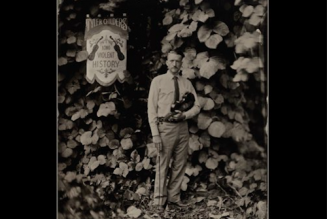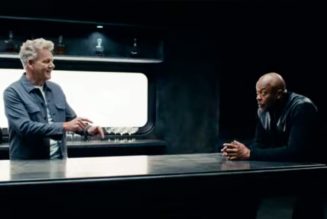
Mary Weiss, lead singer of the Shangri-Las on indelible hits such as “Leader of the Pack,” hasn’t released any music in 40 years — with the exception of some uncredited backing vocals on Aerosmith’s 1979 remake of “Remember (Walking in the Sand).” In fact, until last year she hadn’t even sung a note since a 1989 Shangri-Las reunion. “I didn’t even sing along to the car radio,” she says. “When I put something down, I really put it down.”
But with a new album, Dangerous Game (out March 6), Weiss has picked up music again. Backed by Memphis garage rockers the Reigning Sound, Weiss tackles a dozen new songs offering a raw, near-punk take on the girl-group sound. The best of the bunch is the rueful “Cry About the Radio,” which begins with the declaration “Kids don’t know shit.” “Initially I didn’t know how I’d feel about recording again,” she says. “But when I walked back into the studio, I felt like I was home.”
Over lunch at her favorite Chinese restaurant, around the corner from the United Nations in New York, Weiss is polite but wary. After four decades out of the public eye, she has to be coaxed to tell stories about her past — like the one about the time James Brown booked her for a show in Texas. “When I walked out onstage, I thought he was going to have a coronary,” she says. “He didn’t realize I was white.”
Growing up in Queens, Weiss and her sister Liz teamed up with twins Mary Anne and Marge Ganser; playing local talent shows won them an introduction to producer George “Shadow” Morton in 1964. He called in some favors to record the Shangri-Las’ first demo, “Remember (Walking in the Sand).” The song hit Number Five later that year; Weiss was just fourteen years old.
“When we started, it was all about music,” Weiss says. “By the time it ended, it was all about litigation.” The Shangri-Las split up in 1968; legal complications meant that Weiss was unable to record for ten years. “My mom signed some really bad contracts,” she says. Weiss became a bit of a recluse, doing everything to disguise her appearance except cutting her hair: “It took me twelve years to be able to get lost in the street.”
Always interested in architecture, she landed a job doing commercial interiors — getting office spaces equipped with everything from electricity to carpets. On Sept. 11, 2001, she was on her way to meet a client about a building on Church Street, one block away from the World Trade Center, when the planes hit. “Everybody knew, and they started stampeding uptown,” she remembers. “I just hung on to a lamppost until the herd passed.” Tired of working eighty-hour weeks, and reassessing life after the death of her mother and her brother, Weiss decided to return to music.
“I know people find it weird not many people change careers in their fifties,” Weiss says. “But it’s the right time.” She opens her fortune cookie and reads it out loud. It says, Your beautiful voice gives deep and unforgettable impressions.









